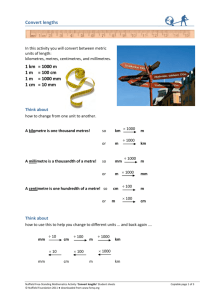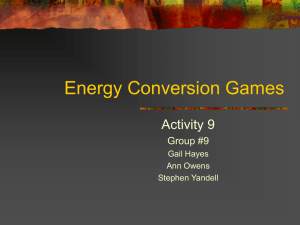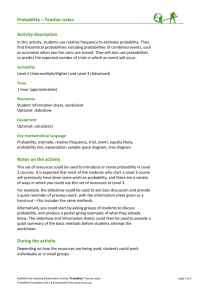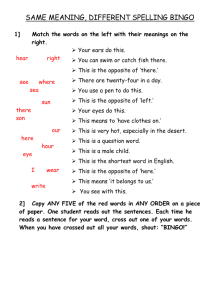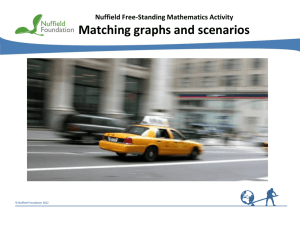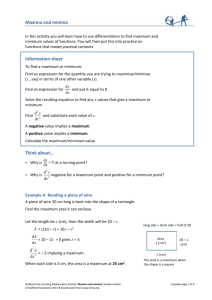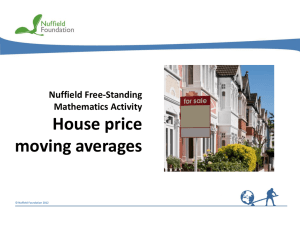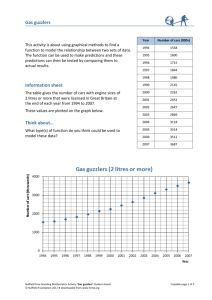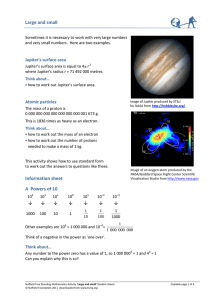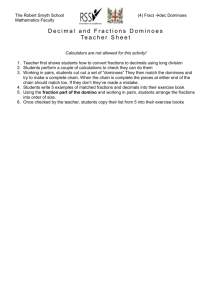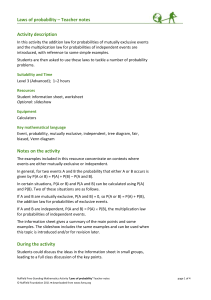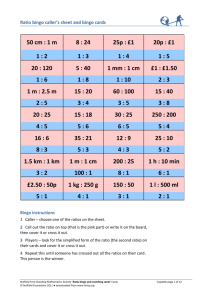Teacher notes Word
advertisement
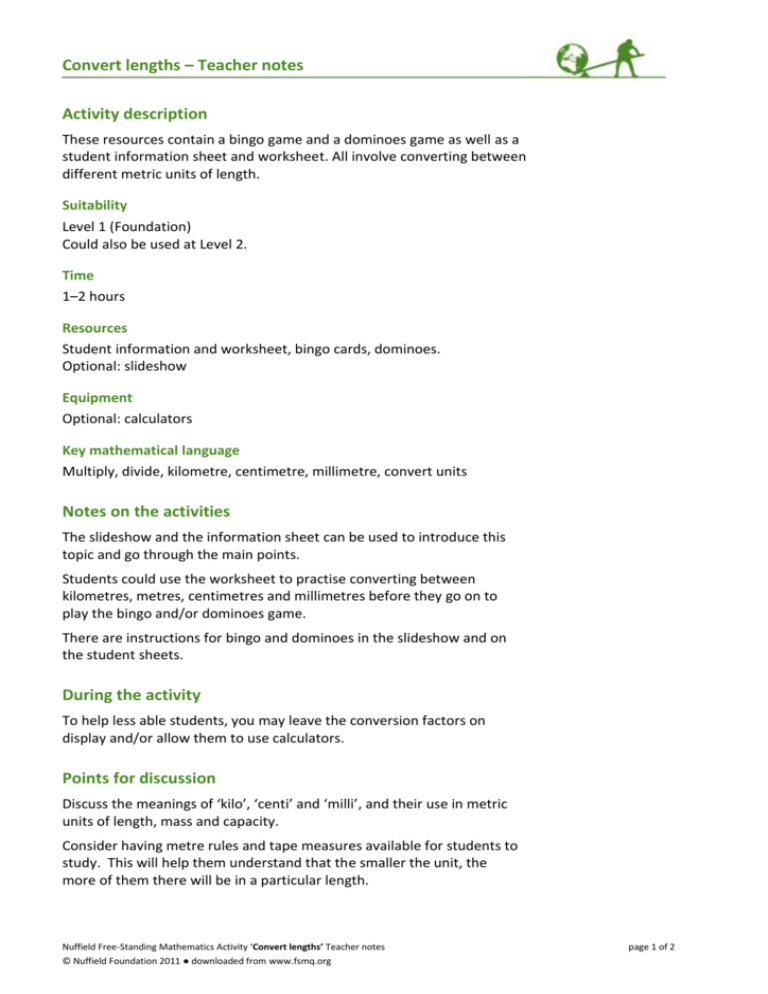
Convert lengths – Teacher notes Activity description These resources contain a bingo game and a dominoes game as well as a student information sheet and worksheet. All involve converting between different metric units of length. Suitability Level 1 (Foundation) Could also be used at Level 2. Time 1–2 hours Resources Student information and worksheet, bingo cards, dominoes. Optional: slideshow Equipment Optional: calculators Key mathematical language Multiply, divide, kilometre, centimetre, millimetre, convert units Notes on the activities The slideshow and the information sheet can be used to introduce this topic and go through the main points. Students could use the worksheet to practise converting between kilometres, metres, centimetres and millimetres before they go on to play the bingo and/or dominoes game. There are instructions for bingo and dominoes in the slideshow and on the student sheets. During the activity To help less able students, you may leave the conversion factors on display and/or allow them to use calculators. Points for discussion Discuss the meanings of ‘kilo’, ‘centi’ and ‘milli’, and their use in metric units of length, mass and capacity. Consider having metre rules and tape measures available for students to study. This will help them understand that the smaller the unit, the more of them there will be in a particular length. Nuffield Free-Standing Mathematics Activity ‘Convert lengths’ Teacher notes © Nuffield Foundation 2011 ● downloaded from www.fsmq.org page 1 of 2 It is also worth discussing the process of multiplying/dividing by 10, 100 or 1000 in order to change units one step at a time. Extensions Ask students to make cards for a game of snap. The cards should show a range of measurements in all four units. Students can then play the game. Use the internet (for instance Google maps or the AA Routeplanner) to find the distances between local towns/villages or places on bus routes in kilometres. Write these distances in metres. Use a trundle wheel to measure some distances around your school or college in metres. Ask students to write these distances in different units. Answers A 3 cm = 30mm, 12 cm = 120 mm, 285 cm = 2850 mm B 6 m = 600 cm, 2.4 m = 240 cm, 0.7 m = 70 cm C 8 km = 8000 m, 0.8 km = 800m, 0.08 km = 80 m D 40 mm = 4 cm, 250 mm = 25 cm, 400 mm = 40 cm E 500 cm = 5 m, 750 cm = 7.5 m, 20 cm = 0.2 m F 2000 m = 2 km, 3500 m = 3.5 km, 300 m = 0.3 km G 0.4 km = 400 m = 40 000 cm H 0.15 km = 150 m = 15 000 cm I 0.07 km = 70 m = 7000 cm J 3 m = 300 cm = 3000 mm K 0.3 m = 30 cm = 300 mm L 90 000 cm = 900 m = 0.9 km M 1500 cm = 15 m = 0.015 km N 250 cm = 2.5 m = 0.0025 km O 600 mm = 60 cm = 0.6 m P 50 mm = 5 cm = 0.05 m Acknowledgement The cards for these games were generated from an Excel spreadsheet provided by the Standards Unit. Nuffield Free-Standing Mathematics Activity ‘Convert lengths’ Teacher notes © Nuffield Foundation 2011 ● downloaded from www.fsmq.org page 2 of 2
